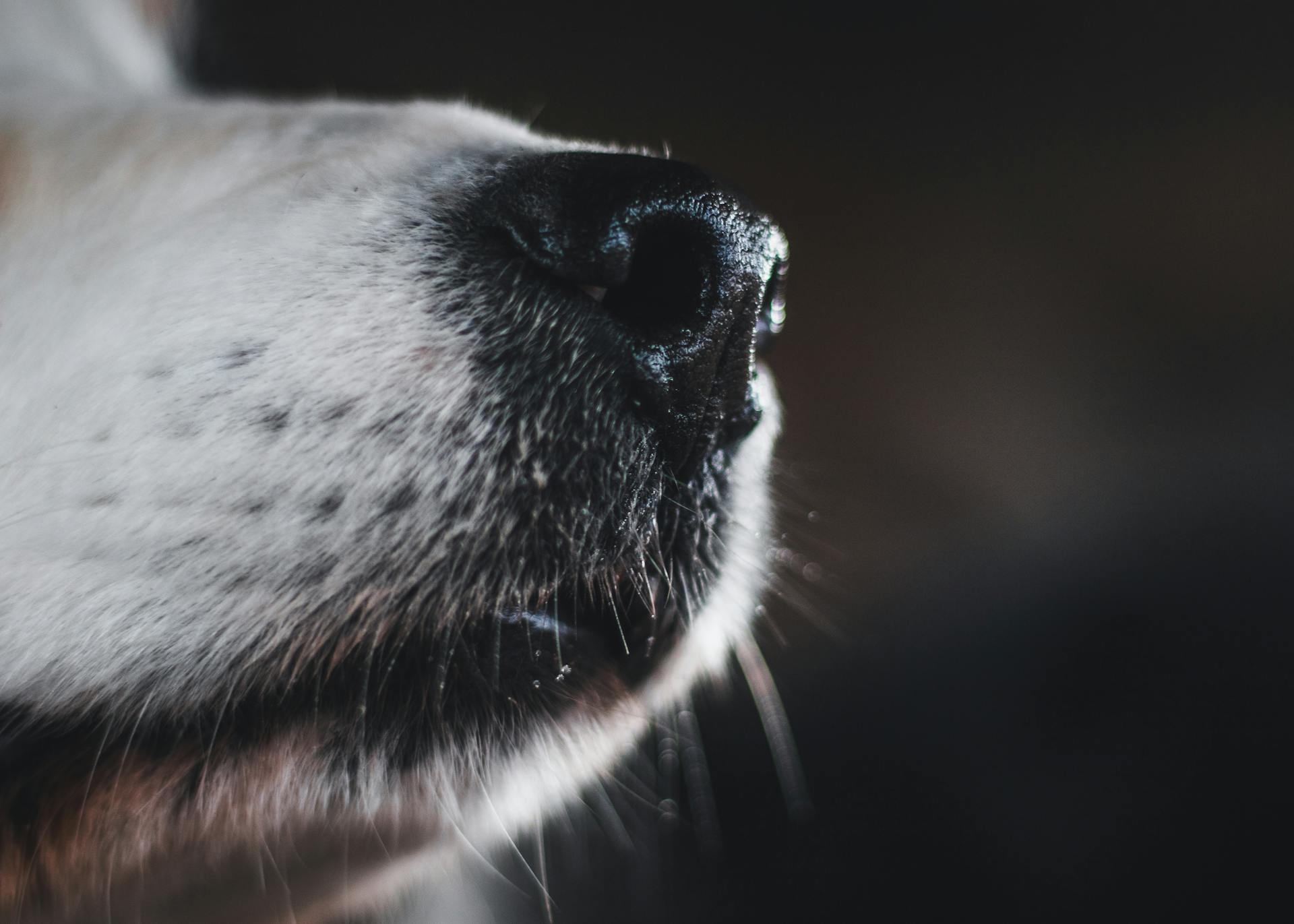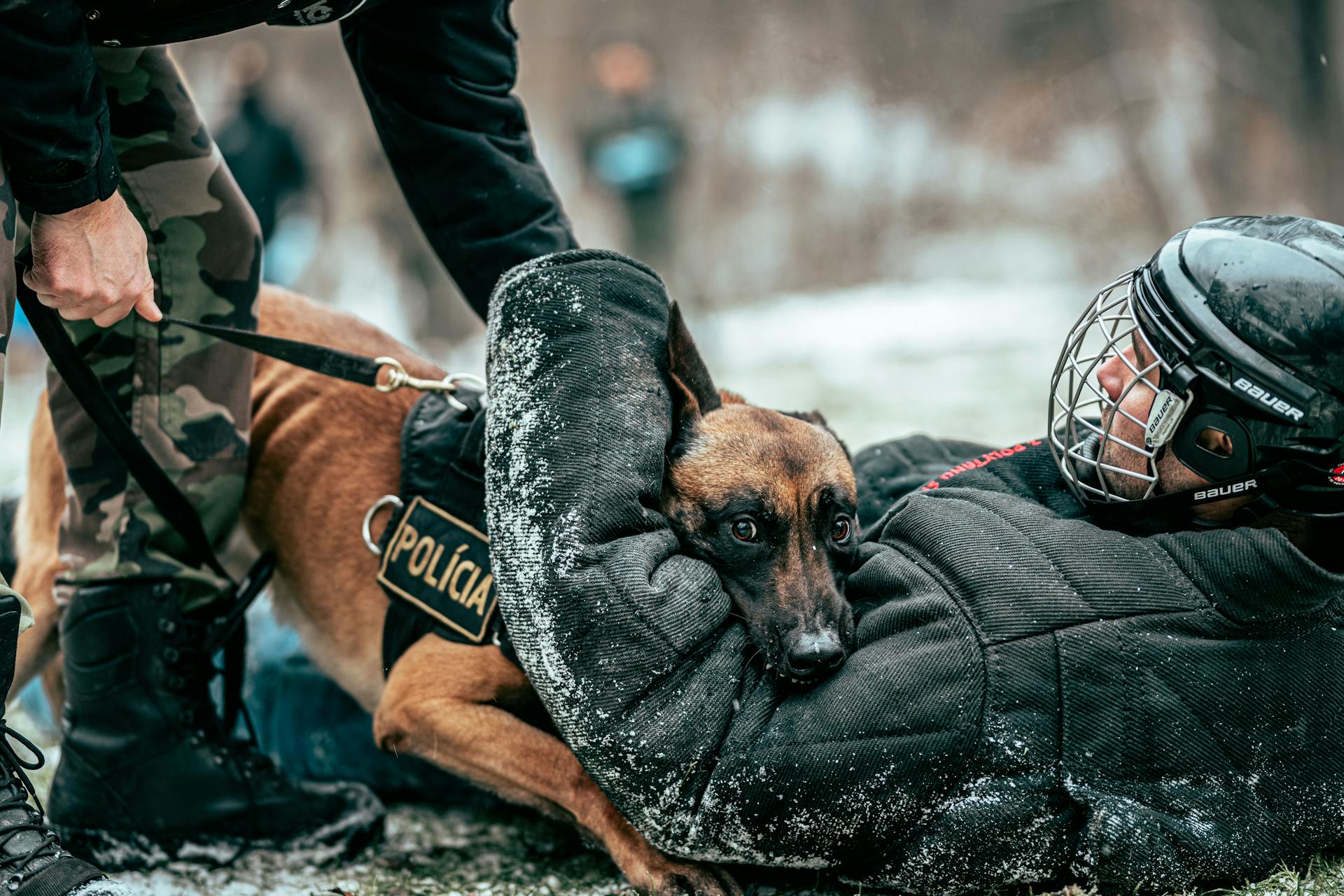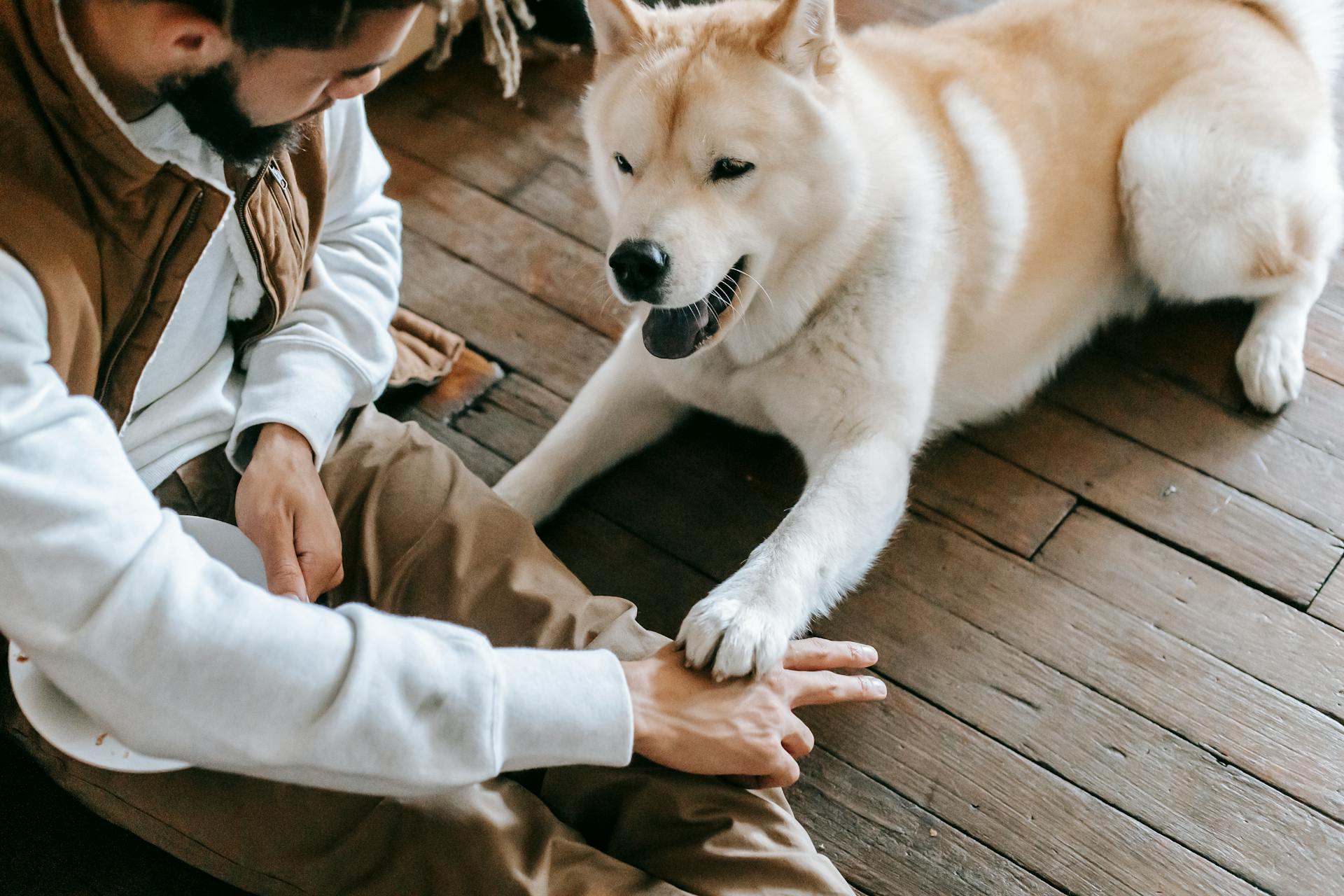
Kennel cough, also known as infectious tracheobronchitis, is a highly contagious respiratory infection that affects dogs.
Symptoms of kennel cough can be mild to severe and may include a persistent cough, runny nose, and lethargy.
In most cases, kennel cough will resolve on its own within 2-3 weeks without treatment.
However, in some cases, kennel cough can lead to more serious complications, such as pneumonia, which can be life-threatening.
Diagnosis
Diagnosis is a crucial step in determining whether your dog has kennel cough. Your veterinarian will examine your dog to rule out other causes of cough, such as a collapsing trachea or heartworm disease.
Veterinary staff will ask questions about exposure to other dogs or multiple-dog settings, which can help strengthen suspicions of kennel cough. If multiple dogs are affected, testing is recommended to confirm infection and identify the specific bacteria/viruses involved.
In cases where your dog seems to be getting worse despite supportive treatment, your veterinarian will collect swab samples from the throat, nose, and/or edges of the eyes and submit those samples for lab testing.
Symptoms and Signs
The primary symptom of kennel cough is a non-productive persistent dry cough that can sound somewhat like a goose honk or as if your pup has something stuck in their throat.
A strong cough, often with a "honking" sound, is the most obvious symptom of kennel cough.
You may also notice a runny nose, sneezing, lethargy, loss of appetite, and low fever in your dog.
Other symptoms can include a lack of energy, decreased appetite, and a mild fever.
If your dog has kennel cough, it's essential to report any coughing symptom to your veterinarian, as it could be a sign of a more serious disease.
Other conditions that can cause coughing in dogs include a collapsing trachea, bronchitis, asthma, and even heart disease.
Here are some common symptoms of kennel cough to look out for:
- Strong cough, often with a "honking" sound
- Runny nose
- Sneezing
- Lethargy
- Loss of appetite
- Low fever
Treatment and Prevention
Kennel cough can be treated with a week or so of rest and supportive care, similar to how you'd treat your own common cold. Basic supportive care aimed at avoiding situations that promote coughing and irritate airways can help mildly affected dogs make a full recovery.
Dogs with more severe illness may benefit from nonsteroidal anti-inflammatory medications to reduce fever and inflammation, and fluids to treat dehydration. Antibiotics are not usually necessary unless there are signs of bacterial pneumonia, including illness that lasts more than 10 days.
Using a dog harness rather than a dog collar when walking a dog with kennel cough can help alleviate irritation of the tracheal area, which can aggravate the cough and possibly even cause damage.
How Dogs Spread?
Dogs can spread CIRDC through close or direct contact with infected dogs, such as licking or nuzzling.
The risk of infection is especially high when dogs are in close contact with other infected dogs for long periods of time. This is why outbreaks often occur in multiple-dog settings.
Dogs can also catch CIRDC by breathing in cough or sneeze droplets from infected dogs, or by exposure to droplet-contaminated items like toys, bedding, or water bowls.
Some CIRDC-associated organisms are quite hardy, able to survive in the environment for weeks, making controlling the spread of infection even more challenging.
Infected dogs can also spread the disease through contaminated people's hands, but this is less common.
Only one CIRDC-associated organism, Bordetella bronchiseptica, is known to infect people, and cases of dog-to-human transmission are extremely rare.
Additional reading: How Is Kennel Cough Contracted
Treatment of Cirdc
Treatment of Cirdc is focused on supportive care, aiming to avoid situations that promote coughing and irritate airways. This means encouraging the dog to rest and avoiding excitement and neck leashes.
Most mildly affected dogs will quickly make a full recovery with basic supportive care. Dogs with more severe illness may benefit from nonsteroidal anti-inflammatory medications to reduce fever and inflammation, and fluids to treat dehydration.
Antibiotics are not usually necessary or recommended unless there are signs of bacterial pneumonia, including illness that lasts more than 10 days. In rare instances, dogs with severe disease may also need intensive supportive care, such as oxygen supplementation.
If your dog is experiencing more severe symptoms, your vet may prescribe antibiotics to help prevent secondary infections or cough suppressants to provide your pup with some relief from the persistent coughing.
Explore further: Shih Tzu Coughing
Prevention

Prevention is key when it comes to kennel cough. A vaccine for kennel cough is available to inoculate dogs against the bordetella bacterium, the most common cause of kennel cough. This vaccine is usually given in two doses two to four weeks apart, followed by a booster every six months to a year.
If your dog regularly spends time with other dogs, ask your vet about vaccinating your pet against kennel cough. While this vaccine may help to prevent kennel cough, it is not 100% fail-safe since kennel cough can be caused by a wide variety of pathogens.
There are three forms of the vaccine available: injection, nasal mist, and oral medication. Your veterinarian will choose the most appropriate form for your dog.
To keep your dog healthy, remember that vaccines not only reduce the chance of your dog becoming ill, they also make your dog less likely to develop severe disease or spread the infection to other dogs. Your veterinarian will help you decide which vaccines your dog needs.
Explore further: Skin Care for Dogs with Allergies

Here are some additional tips to protect your dog against kennel cough and other respiratory infections:
- Keep your dog's vaccines current.
- Limit your dog's exposure to other dogs, especially if they're showing signs of illness.
- Use a dog harness rather than a dog collar to walk your dog, as irritation of the tracheal area can aggravate the cough.
- Stay informed about places or geographic regions where kennel cough or other respiratory infections have been reported.
Frequently Asked Questions
Can humans catch kennel cough?
Yes, humans can catch kennel cough, but it's extremely rare. If you're concerned about symptoms, learn more about the risks and signs to look out for.
Do dogs with kennel cough constantly cough?
No, not all dogs with kennel cough constantly cough, but those who do may experience a persistent, worsening cough with activity or exercise
When should I take my dog to the vet for kennel cough?
Take your dog to the vet if they're coughing for more than 7 days, losing appetite, or showing signs of fever and lethargy, as these can be signs of a more serious infection
Does kennel cough get worse before it gets better?
Kennel cough can progress to more severe symptoms, especially in vulnerable dogs like puppies and seniors, before it starts to improve. Understanding the underlying causes of kennel cough, a combination of viruses and bacteria, is key to knowing what to expect
How do I know when kennel cough is over?
Kennel cough symptoms typically subside within 2-3 weeks, but may persist for up to a month. If your dog's coughing fits become less frequent and severe, it's likely a sign that the infection is resolving.
Sources
- https://www.avma.org/resources-tools/pet-owners/petcare/canine-infectious-respiratory-disease-complex-kennel-cough
- https://www.villagecentervet.com/resources/materials/dog-health/kennel-cough
- https://pointgreyvet.com/what-you-need-to-know-about-kennel-cough/
- https://www.akc.org/expert-advice/health/kennel-cough-in-dogs/
- https://www.guilfordjamestownvet.com/site/blog-greensboro-vet/2024/02/15/dog-kennel-cough-symptoms
Featured Images: pexels.com


